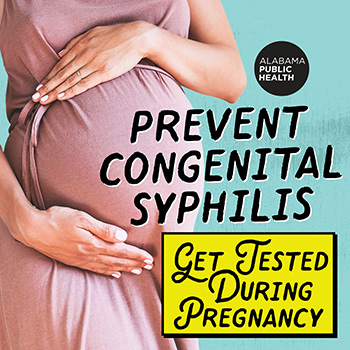SEE ALSO:
BCL Webportal
Communicable Diseases
HIV
Mpox
NEED HELP?
Having trouble finding what you are looking for? Use our A to Z Index.
Facts
There are dozens of STIs caused by bacteria, virus, or parasites. Most people are affected by:Bacterial Vaginosis
Any woman can get bacterial vaginosis (BV). Having bacterial vaginosis can increase your chance of getting a sexually transmitted disease (STD).
- BV is a common, treatable, vaginal condition.
- BV is not considered an STD because it can occur without sexual activity, but factors like douching and multiple partners increase the risk.
- It can increase the risk of other sexually transmitted infections (STI) and complications during pregnancy.
Chlamydia
Chlamydia is a common sexually transmitted disease (STD) that can be easily cured. If left untreated, chlamydia can make it difficult for a woman to get pregnant.
- Chlamydia is a common, treatable sexually transmitted infection (STI) that can cause infection among men and women.
- People who are sexually active can get chlamydia.
- Chlamydia can also cause a potentially fatal ectopic pregnancy (pregnancy that occurs outside the womb).
Genital Herpes
Genital herpes is a sexually transmitted infection (STI) caused by two types of viruses: herpes simplex virus type 1 (HSV-1) and herpes simplex virus type 2 (HSV-2).
- Genital herpes is a common STI that can be treated.
- People who are sexually active can get genital herpes.
- Most people with genital herpes have no symptoms or have very mild symptoms.
- Mild symptoms may go unnoticed or be mistaken for other skin conditions like a pimple or ingrown hair. Because of this, most people do not know they have a herpes infection.
Gonorrhea
Gonorrhea is a sexually transmitted infection (STI) that can cause infection in the genitals, rectum, and throat. It is very common, especially among young people ages 15-24 years.
- Gonorrhea is a common STI that can be treated.
- People who are sexually active can get gonorrhea.
- You can get gonorrhea by having vaginal, anal, or oral sex without a condom with someone who has the infection.
- A pregnant woman with gonorrhea can give the infection to her baby during childbirth.
STDs and Pregnancy
If you are pregnant, you can become infected with the same sexually transmitted diseases (STDs) as women who are not pregnant. Pregnant women should ask their doctors about getting tested for STDs, since some doctors do not routinely perform these tests. Download our guide for STD screening during pregnancy.
Visit STDs and Pregnancy to learn more.
Syphilis
Syphilis is a sexually transmitted disease (STD) that can have very serious complications when left without treatment. People who are sexually active can get syphilis, but it is simple to cure with the right treatment. The infection develops in stages (primary, secondary, latent, and tertiary). Each stage can have different signs and symptoms.
Visit Syphilis to learn more.
Congenital Syphilis
 Babies can also get syphilis when pregnant women pass syphilis to their babies during pregnancy. This is called Congenital syphilis (CS).
Babies can also get syphilis when pregnant women pass syphilis to their babies during pregnancy. This is called Congenital syphilis (CS).
Recently, there has been a sharp increase in the number of babies born with syphilis in the United States. Syphilis is easy to cure in its early stages. Pregnant women should be tested regularly for syphilis because infection with syphilis can cause serious problems in a baby.
CS cases have more than tripled in recent years, with more than 42 cases reported Alabama in 2023 alone. This is the highest number reported in one year in Alabama since 2014. Protect your baby from congenital syphilis by getting tested for syphilis during your pregnancy.
- Women who are pregnant can become infected with the same STDs, including syphilis, as women who are not pregnant.
- Untreated syphilis in pregnancy can cause miscarriage, stillbirth, prematurity, low birth weight, or death shortly after birth.
- Babies born with congenital syphilis may have deformed bones; severe anemia; enlarged liver and spleen; jaundice; brain and nerve problems, such as blindness or deafness; meningitis; and skin rashes.
- Pregnant women should ask their doctors about getting tested for STDs, since some doctors do not routinely perform these tests. Download our guide for STD screening during pregnancy.
Syphilis and Men Who Have Sex with Men (MSM)
Anyone who has sex can get an STI. However, sexually active gay, bisexual and other men who have sex with men are at greater risk. MSM have higher rates of syphilis and make up more than half of all new HIV infections.
- MSM are more likely to get STIs.
- Most STIs have no signs or symptoms.
- Sexually active gay, bisexual, and other MSM are at greater risk for getting a STI.
- The only way to know your STD status is to get tested.
- Once nearly eliminated in the U.S., syphilis is increasing, especially among gay, bisexual, and other MSM.
MPox
Are you worried about Mpox? Get the facts, know the symptoms, and get help. Visit Mpox to learn more.
Page last updated: February 4, 2026
SEE ALSO:
BCL Webportal
Communicable Diseases
HIV
Mpox
NEED HELP?
Having trouble finding what you are looking for? Use our A to Z Index.




